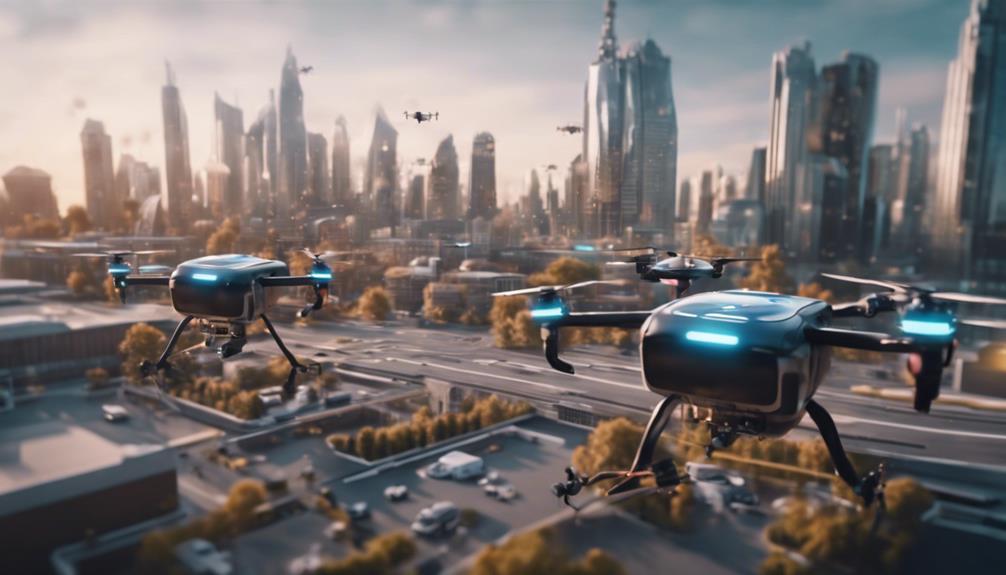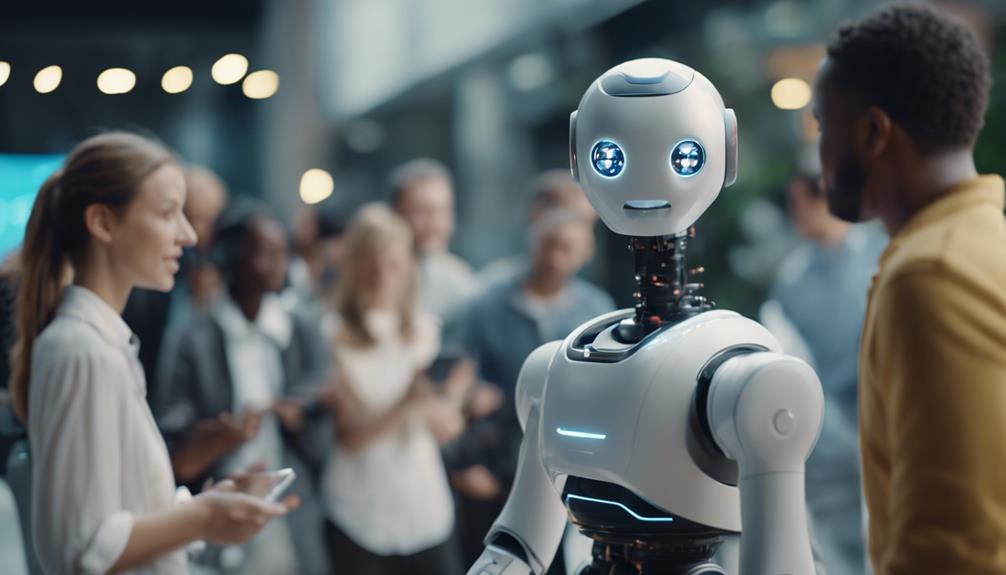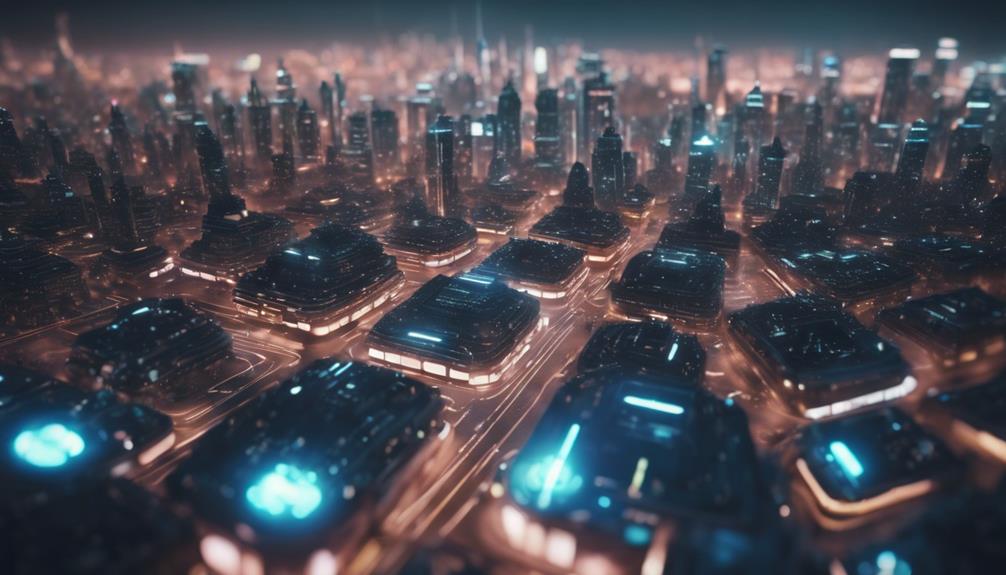Artificial Intelligence in Mecca
AI Applications in Various Industries in Mecca

Evolution of Artificial Intelligence Techniques
How have artificial intelligence methods evolved over time to shape modern technological advancements?The journey of AI methods began with symbolic approaches and problem-solving techniques in the 1950s, laying the foundation for the development of advanced algorithms. DARPA's involvement in street mapping projects during the 1970s marked significant progress in applying AI practically. Over the years, AI has shifted from basic problem-solving to more complex tasks like pattern recognition, driven by continuous research and technological innovations.One of the key advancements in AI methods has been the rise of machine learning algorithms, particularly neural networks. This evolution has led to the emergence of deep learning, a subset of machine learning that focuses on training data to enhance decision-making processes. Additionally, AI methods now include computer vision for image recognition and unsupervised learning for identifying patterns without labeled data. The fusion of these methods has propelled AI to new heights, enabling it to tackle a wide array of tasks efficiently and effectively.Impact of AI on Society in Mecca

Ethical Considerations in Artificial Intelligence
Considering the intricate interplay between technology and ethics, examining the ethical implications of artificial intelligence (AI) is paramount in shaping a responsible and equitable future. Ethical considerations in AI encompass a range of critical issues. Bias in algorithms is a significant concern, as it can lead to discriminatory outcomes in decision-making processes.Transparency in AI systems is vital to understand how decisions are reached and guarantee accountability for ethical standards. Data privacy is another key aspect, with worries about the security and consent surrounding the collection and utilization of personal data in AI applications.Fairness and equity in AI implementation involve tackling societal biases and ensuring just outcomes for all individuals affected by AI technologies. To address these concerns, ethical AI frameworks and guidelines are being developed to promote responsible AI practices and mitigate potential harm to society and individuals.It is imperative to navigate these challenges thoughtfully to foster a future where AI operates ethically and equitably.Future of AI and Superintelligence

Frequently Asked Questions
What Are 4 Types of Artificial Intelligence?
The four types of artificial intelligence include Weak AI, focused on specific tasks; Strong AI or artificial general intelligence (AGI), aiming for human-like cognitive abilities; Artificial super intelligence (ASI) surpassing human intelligence; and Machine learning enabling systems to learn autonomously.How Is AI Being Used Today?
AI is revolutionizing various sectors like healthcare, finance, transportation, customer service, and agriculture. It aids in diagnosing diseases, fraud detection, autonomous vehicle navigation, chatbots for customer service, and precision farming. AI applications continue to enhance efficiency and innovation across industries.Can You Explain Artificial Intelligence?
Artificial intelligence demonstrates the emulation of human cognitive processes by machines. It encompasses tasks like problem-solving, learning from data, and applying knowledge to automate functions. AI's evolution and significance span various sectors, enhancing efficiency and innovation.What Is 1 Example of Artificial Intelligence?
One prominent example of advanced technology is IBM's Watson, known for utilizing natural language processing and machine learning to analyze data and offer valuable insights. This cutting-edge system showcases the power of innovation in data analysis and decision-making processes.Mecca Artificial Intelligence: Revolutionizing the Future
The Mecca Artificial Intelligence (AI) is a cutting-edge technology that has revolutionized the way we interact with machines. Utilizing advanced algorithms and machine learning, Mecca AI has the ability to analyze and interpret complex data, and perform tasks that were once only possible for humans. This groundbreaking technology has the potential to transform industries and improve efficiency in various sectors.
Understanding Mecca AI
Mecca AI is designed to replicate human intelligence, enabling machines to learn from experience, adapt to new inputs, and perform tasks with precision. This technology has the ability to process large volumes of data at incredible speeds, making it a valuable tool in fields such as healthcare, finance, and manufacturing. By leveraging Mecca AI, companies can automate repetitive tasks, optimize processes, and make more informed decisions based on data-driven insights.
Implications for the Future
The implications of Mecca AI are vast, with the potential to transform the way we live and work. In healthcare, Mecca AI can assist medical professionals in diagnosing diseases and developing personalized treatment plans. In finance, Mecca AI can enhance fraud detection and risk management. In manufacturing, Mecca AI can optimize supply chain operations and improve quality control. The possibilities are endless, and the impact of Mecca AI is expected to be far-reaching.
Conclusion
Mecca Artificial Intelligence represents a new era of innovation and transformation. As this technology continues to evolve, it has the potential to create new opportunities and redefine the way we approach problem-solving and decision-making. With its ability to analyze complex data and perform tasks with precision, Mecca AI is poised to revolutionize industries and drive progress in our increasingly digital world. As we look to the future, it is clear that Mecca AI will play a crucial role in shaping the way we live, work, and interact with technology.
Other Services in Mecca
Mecca (; officially Makkah al-Mukarramah, commonly shortened to Makkah) is the capital of Mecca Province in the Hejaz region of western Saudi Arabia and the holiest city in Islam. It is 70 km (43 mi) inland from Jeddah on the Red Sea, in a narrow valley 277 m (909 ft) above sea level. Its last recorded population was 2,385,509 in 2022. Its metropolitan population in 2022 is 2.4 million, making it the third-most populated city in Saudi Arabia after Riyadh and Jeddah. Around 44.5% of the population are Saudi citizens and around 55.5% are foreigners from other muslim countries. Pilgrims more than triple the population number every year during the Ḥajj pilgrimage, observed in the twelfth Hijri month of Dhūl-Ḥijjah. With over 10.8 million international visitors in 2023, Mecca was one of the 10 most visited cities in the world.
Mecca is generally considered “the fountainhead and cradle of Islam”. Mecca is revered in Islam as the birthplace of the Islamic prophet Muhammad. The Hira cave atop the Jabal al-Nur (“Mountain of Light”), just outside the city, is where Muslims believe the Quran was first revealed to Muhammad. Visiting Mecca for the Ḥajj is an obligation upon all able Muslims. The Great Mosque of Mecca, known as the Masjid al-Haram, is home to the Ka’bah, believed by Muslims to have been built by Abraham and Ishmael. It is Islam’s holiest site and the direction of prayer (qibla) for all Muslims worldwide.
Muslim rulers from in and around the region long tried to take the city and keep it in their control, and thus, much like most of the Hejaz region, the city has seen several regime changes. The city was most recently conquered in the Saudi conquest of Hejaz by Ibn Saud and his allies in 1925. Since then, Mecca has seen a tremendous expansion in size and infrastructure, with newer, modern buildings such as the Abraj Al Bait, the world’s fourth-tallest building and third-largest by floor area, towering over the Great Mosque. The Saudi government has also carried out the destruction of several historical structures and archaeological sites, such as the Ajyad Fortress. However, many of the demolitions have officially been part of the continued expansion of the Masjid al-Haram at Mecca and the Prophet’s Mosque in Medina and their auxiliary service facilities in order to accommodate the ever-increasing number of Muslims performing the pilgrimage (hajj). Non-Muslims are strictly prohibited from entering the city.
Under the Saudi government, Mecca is governed by the Mecca Regional Municipality, a municipal council of 14 locally elected members headed by the mayor (called Amin in Arabic) appointed by the Saudi government. In 2015, the mayor of the city was Osama bin Fadhel Al-Barr; as of January 2022, the mayor is Saleh Al-Turki. The City of Mecca amanah, which constitutes Mecca and the surrounding region, is the capital of the Mecca Province, which includes the neighbouring cities of Jeddah and Ta’if, even though Jeddah is considerably larger in population compared to Mecca. The Provincial Governor of the province since 16 May 2007 is Prince Khalid bin Faisal Al Saud.
